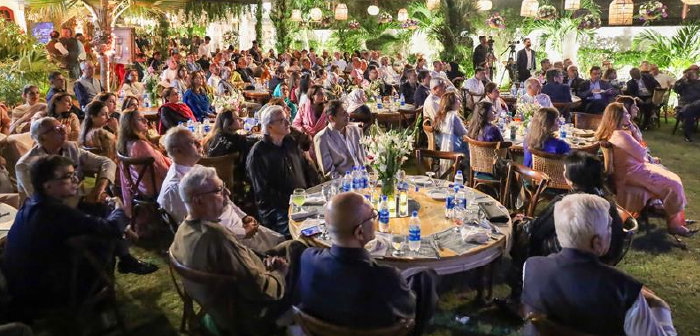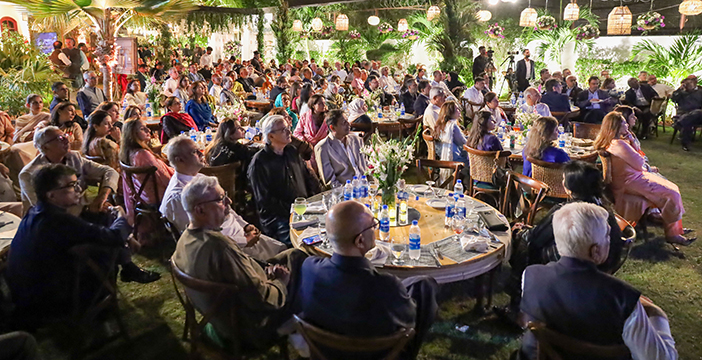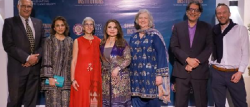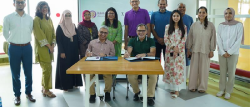Partnering for a Purposeful Future
As Pakistan’s landscape of higher education evolves, Habib University continues to lead with a mission rooted in equity and excellence. Central to this mission is a growing network of industry partners—organizations and individuals who recognize that supporting higher education is a vital expression of corporate and social responsibility. From leading banks to tech firms and philanthropic foundations, Habib University’s expanding Mohsineen community is shifting the paradigm of corporate partnerships: from short-term charity to long-term investment in human potential and institutional development. In this spirit, Habib University and Faysal Bank co-hosted a landmark Ramzan gathering that reconnected modern philanthropy with its deep Islamic roots.
Reclaiming the Legacy of Islamic Philanthropy
On March 12th, during the sacred month of Ramzan, Habib University and Faysal Bank came together to host Ilm & Barakah—an evening of reflection, purpose, and shared responsibility. More than an Iftar, the event represented a return to the Islamic ethic of giving rooted not only in charity, but in the construction of enduring institutions that serve society for generations.
The evening brought together leaders from across Pakistan’s corporate and business sectors, united by a collective vision: that access to quality higher education is not a privilege, but a communal obligation. The event revived the spirit of zakat and waqf—two foundational pillars of Islamic giving that historically powered the intellectual and civic flourishing of Muslim societies.
From Al-Qarawiyyin to Al-Azhar, the Muslim world built some of the world’s earliest universities through the institution of waqf, ensuring that knowledge was not just preserved but accessible. Ilm & Barakah called upon this legacy, inviting today’s leaders to see their contributions as a continuation of this sacred tradition.
A Shared Responsibility: Leaders Reflect
The gathering opened with remarks by Mr. Raheel Ijaz, Chief Operating Officer of Faysal Bank Ltd., who welcomed guests and spoke to the power of Islamic finance in advancing long-term, ethical causes. He was followed by Mr. Yousaf Hussain, President and CEO of Faysal Bank Ltd., who emphasized that education must become a central pillar of Pakistan’s CSR landscape, particularly for institutions striving to uplift underserved communities.
Mr. Wasif Rizvi, President of Habib University, delivered a powerful message centered on the moral imperative of higher education. He highlighted how HU, through its unmatched scholarship program, is not only expanding access but also building a model of education that blends technical expertise with ethical and humanistic grounding. He urged attendees to reimagine their role—not just as donors, but as founders of a new educational legacy rooted in justice, sustainability, and faith.
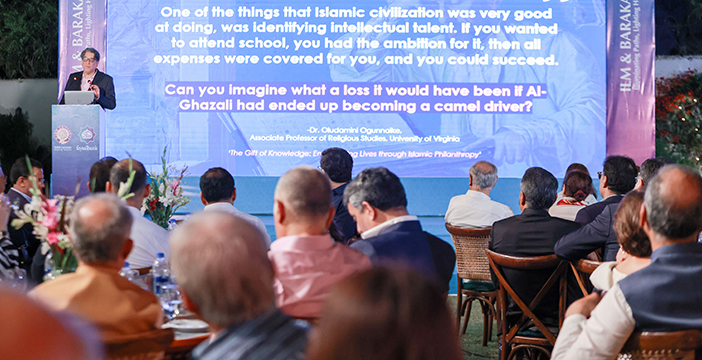
Sustaining Knowledge Through Faith-Inspired Giving
The significance of hosting the event during Ramzan added spiritual depth. It is a month where giving becomes a daily act of devotion, where zakat purifies not only wealth but intent, and where waqf extends one’s impact far beyond their lifetime. Within this sacred context, attendees were invited to reflect on their philanthropic roles not merely in terms of charity, but in upholding an Islamic tradition that places knowledge and generosity at the heart of faith.
Through Ilm & Barakah, Habib University continues to champion a vision of giving that is rooted in sustainability, faith, and institution-building. The collaboration with Faysal Bank signals a growing momentum—where industry leaders are no longer content with transactional giving but are embracing a deeper, legacy-driven approach to philanthropy.
As the evening closed, one message stood clear: building a more equitable future for higher education in Pakistan will require not only generosity, but the kind of visionary giving that Islamic tradition has long championed—giving that doesn’t just respond to need, but creates enduring opportunities for generations to come.

